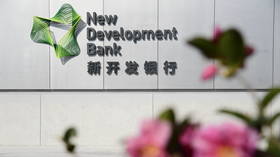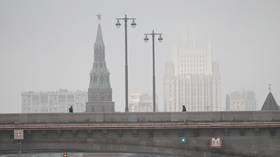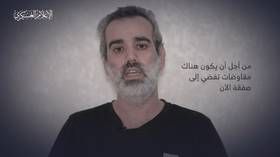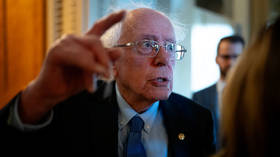South Africa calls for BRICS bank to expand trade in national currencies

The New Development Bank (NDB) set up by the BRICS group of major emerging countries needs to increase local currency fundraising and lending amid Western sanctions against founding shareholder Russia, the South African Finance Ministry has told Reuters.
The statement comes as South Africa prepares to host a summit of BRICS leaders in Johannesburg later this month. According to Finance Minister Enoch Godongwana, an increase in local currency use among NDB members will be on the agenda, with the aim of reducing the impact of foreign exchange fluctuations rather than de-dollarization.
“Most countries that are members of the NDB have been encouraging [it] to provide loans in local currencies,” Godongwana told Reuters. “[It is] not doing as much as member countries require, but that is the strategic direction we are pushing the bank [in],” the minister added.
The Shanghai-based NDB was established in 2014 by Brazil, Russia, India, China, and South Africa with the aim of providing funding for infrastructure and sustainable development projects. The bank formally opened for business in 2015, and was later joined by Bangladesh, the United Arab Emirates, Egypt, and Uruguay. Saudi Arabia is also in talks to become a member.
NDB Chief Financial Officer Leslie Maasdorp told Reuters that the bank aims to increase local currency lending from about 22% to 30% by 2026. However, he noted that there were limits to de-dollarization.
“The bank’s operating currency is dollars for a very specific reason: US dollars are where the largest pools of liquidity are,” Maasdorp explained. The bank is responsive to its members and will decide the mix of currencies it uses based on their demands, he added.
According to Reuters, citing the NDB’s April investor presentation, the financial institution has so far approved the equivalent of more than $30 billion in loans, with two-thirds being in dollars.
Analysts have suggested that US sanctions on Russia have underpinned the need to boost the NDB’s local currency fundraising and raise capital from new members, which could help it cut dependence on US capital markets.
For more stories on economy & finance visit RT's business section












